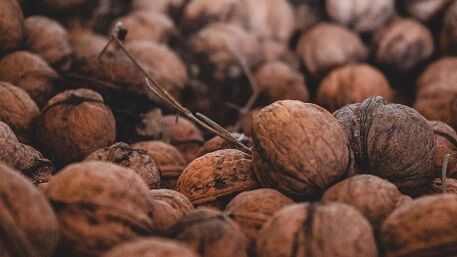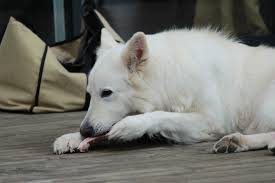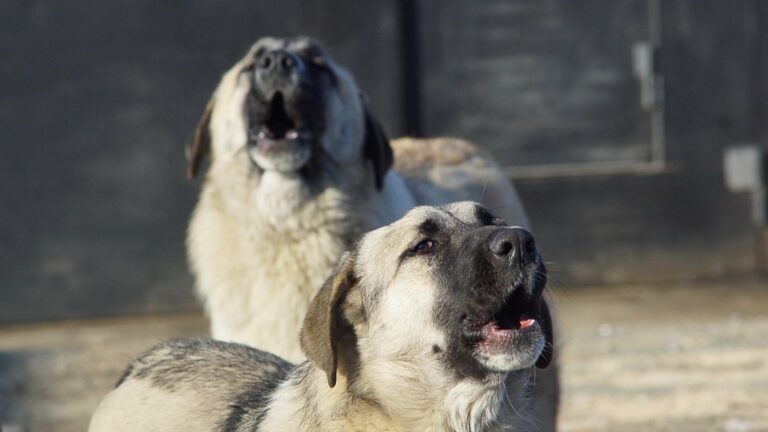Can Dog Eat Walnuts? What is good What is Not?
While chocolate, alcohol, garlic, and onions are a strict no for our canine. When it comes to nuts, things get a little more complicated. Some nuts are safe and nutritious dog treats, while others are toxic! can dogs eat walnuts? can dogs eat them safely?
To answer the question, we can consider our pet eating nuts as a positive sign in certain ways. The majority of nuts are safe for dogs and will not trigger an allergic response. Few can be poisonous or dangerous. then comes the question can my dog eat walnuts?
Let’s take a closer look at the many types and qualities of nuts available. How can dogs eat walnuts safely? We can learn about risk proportions and possibilities. Since we love our dog, its health is our priority, and its well-being is our duty.
Nuts
Nuts are a popular food that has a high concentration of useful fats and proteins that people can digest. This is not the case with dogs, yet dogs love nuts! Now the question is, how can a dog eat walnuts?
Why can’t your dog eat nuts?
If you share too many nuts from your mixed-nut snack bowl with your dog, it might result in a severe stomach ache or, terrible pancreatitis.
Molds and fungi are other factors to consider when giving your dog a nut treat. All nuts have the chance to contain molds or fungus, which can be harmful to your dog if consumed. This is especially true for raw nuts, so only feed roasted or cooked nuts to your dog to be safe.
Finally, there are seasonings to consider. Many nuts are seasoned with salts, spices, and sugars. These are not healthy food alternatives for your canine. Dogs are unable to handle spices or salts in the same way that humans do. Excessive eating might result in salt poisoning or serious stomach pain. I will ensure the above things every time I can when my dog eats walnuts.
Can dogs eat walnuts safely?
Peanuts
When it comes to nut treats for our dogs, most of us think of peanuts first.
Peanuts, which are legumes rather than nuts, are not harmful to your dog. Yet, they are heavy in fat and calories, like other nuts.
If you use small quantities of peanut butter, it’s ok, but don’t overdo it. If you give your dog too much, he or she may get an upset stomach or pancreatitis as a result of the high-fat content. Keep salts and sweets to least (especially artificial sweeteners or sugar substitutes)
Xylitol, an artificial sweetener present in a few peanut butter brands. It is dangerous to dogs if consumed. It may make your dog very sick, sometimes in as little as 10 – 60 minutes.
Xylitol poisoning symptoms include low blood sugar, vomiting, lethargy, stumbling, and even seizures.
Can dogs eat Cashews?
If we take roasted cashews, they are safe for dogs. If you come across any cashews that are raw or in their shells, do not feed them.
Cashews have high fat and calorie content. They also have a high potassium content, which can cause urinary tract problems in dogs.
Can dogs eat Almonds?
Dogs should avoid almonds. They are not well digested by a dog’s digestive system. While they are not harmful to your dog, they may cause gastrointestinal issues.
This nut’s big size and shape might cause it to become stuck in the windpipe, esophagus, or intestines.
Can dogs eat Walnuts?
The most common walnuts are black and English. Neither of these is safe for your dog to eat. Apart from the normal choking and obstruction concerns, these nuts have a darker side.
Juglone, a toxic chemical released by the roots of walnut plants, Might present in walnuts. At least in black.
Its goal is to prevent other plants from developing around them. It sticks to the shell of the walnut as it falls off the tree. In horses, juglone causes laminitis, while in dogs, it produces convulsions or seizures.
Walnuts can also contain mycotoxins, a poisonous material generated by fungus and molds. It can induce seizures or convulsions. If you have a tree of walnut, be sure that your pooch remains away from all fallen walnuts.
If you have a tree of walnut, be sure that your pooch remains away from all fallen walnuts.
English Walnuts are the safest of all walnuts and are not hazardous to your dog. They are low in juice and do not have the same toxicity as the Black Walnuts. They contain significant calories and fat, so It should be rare or never.
Can dogs eat sunflower seeds?
Yes, sunflower seeds are all right for dogs in small quantities. It is even better when no salt and separated from their high shells.
Can dogs eat Pecans?
Pecan pie or pecan cookies in many holiday settings are a major favorite. Pecans are not suitable for your dog and are harmful among the walnut group. They are also known to induce liver damage in dogs.
Mycotoxins included. Juglones that may induce convulsions or seizures can also present.
Can dogs eat Hazelnuts?
These delicious nuts are in the same group as pecans and walnuts. They are hazardous because they can have mycotoxins and juglone. It’s wise to avoid using your dog to share this favorite snack nut.
Can dogs eat Pistachios?
Pistachio is still another nut, but not so good for your dog, as human food. Pistachios can have juglone, aspergill mold, or mycotoxin, while they are not harmful to your dog, which can lead to liver failure in dogs when consumed.
Due to the high fat and calories in the nuts, pistachios should be supplied little.
Can dogs eat Brazil Nuts?
For your dog, these big nuts are safe. They are the fattiest of the nuts, though. It will not influence your big dog. It may create a stomach upset, or the more serious pancreatitis issue by providing more. Even a brazil nut may be insecure for a little dog.
Can dogs eat Macadamia Nuts?
These nuts are harmful to your dog, whether raw or roasted. Scientists don’t know why there is a degree of toxicity, but tests have shown that dogs should not consume macadamia nuts. There are no safe nuts for your dog.
Macadamia toxicity can occur if your dog has indications of back leg sickness, vomiting, diarrhea, and severe gastrointestinal issues.
Can dogs eat Hickory Nuts?
For the same reasons as pecans and walnuts, these nuts are not safe for your dog. They may include mycotoxins or molds that might induce seizures and convulsions.
Can dogs eat Pine Nuts?
These nuts don’t harm your dog. But, the fat and phosphate are high and hence rarely offered. Too many may induce discomfort or pancreatitis in the gastrointestinal system. excessive amounts of phosphorus might lead to issues for urinary tract problems for dogs.
Can dogs eat Roasted Chestnuts?
The American Chestnut is the one you can make your dog eat safely (not the Horse Chestnut, which is toxic to dogs for the same reason as walnuts). But, the fats and calories are quite huge and excessive. Your dog should eat only tiny parts of this big nut, only if it is roast.
Can dogs eat walnut?
It won’t harm him if your dog steals a walnut fallen from your cooker’s counter. Dogs can eat walnuts, But it shouldn’t be a diet to your doggie since walnut is prone to a certain form of black mold, which is poisonous to dogs. we can take precautions and give our dog as it can eat safely.
Can dogs eat walnut shells?
Nutshells are never suggestable. They are not digested and present dangerous choking and obstruction. Your hard shells may also have sharp edges, which may create drillings in your gut that lead to operation.
Signs of Nut Poisoning in Dogs
Consult your vet immediately if you detect any of these signs in your dog.
- Weakness
- Depression
- Tremors
- Vomiting
- Diarrhea
- Seizures
How Do I Prevent My Dog from Eating Nuts Again?

Hide nuts or put them in confined spaces to avoid your dog ingesting nuts. It is usually advised to check labels to ensure that harmful substances do not exist. Pets should get rare treats, labeled with peanut butter.
Can dog eat black walnut? Treatment for poisoning
If your dog takes either a moldy walnut or a black walnut, you will need to be promptly contacted to Vet. Take care of symptoms like vomiting, tremors, and seizures, as they will be fatal if you do not treat your dog.
You would most pump its bowels and offer activated carbon to absorb the toxins in the digestive system of your pet. The therapy can be different and may take a little longer if your dog has a convulsion.
It generally takes 1 to 2 days for dogs to recover, but always be careful of recurring symptoms. Make sure you notify your veterinarian immediately if any symptoms come back.
Certain dogs may take longer to cure, even for a week, so be on the watch for anomalies in the health of your dog.
Many research which has studied the influence of moldy walnuts on dogs. It has revealed that mycotoxin toxicity is completely recovered.
This can, still, rely on how much the dog ingests and how fast we discover it, helps your pet.
There is hardly any research into the effects and recovery of black walnuts on dogs. Black walnuts seem less harsh than black walnut tree wood.
Alternatives:
For dogs that are overweight or likely to gain weight, nuts can’t be good. Since human foods are lower in calories than green beans and air-covered popcorn that is free from butter and salt is a good treat. Avoid nuts here.
- Carrots
- Peanuts
- pistachios
When are they toxic?
Ingredients such as chocolate or spices like garlic or pepper can coat nuts and a high salt may also occur.
Such aromatic lacquers can induce GI disturbance for dogs.
Few canines may get high blood pressure due to excessive salt consumption. High-salt diets can make these issues worse for other dogs who are prone to urinary stones. When they have an underlying cardiac or renal illness.
Can Dogs Eat Cooked Walnuts?
Some people may feel that boiling or roasting English walnuts might assist to get rid of any mold in them.
This is not true because they are by-products of chemicals and are not bacterial organisms.
The same rules apply to cooked walnuts. Fresh English walnuts may be all right in modest quantities. But black walnuts or moldy walnuts are difficult.
What is the limit?
Remember, fresh French walnuts are not moldy, thus they have no tremorgenic mycotoxins. They are harmless. So, A modest amount of fresh English Walnuts will not cause the following symptoms. My dog can eat walnuts, as it has been trained to eat only as a treat.
Don’t use significant quantities of fresh English walnuts in your dog’s diet. The high-fat levels they eat may induce vomiting, so please contact your vet for tips. Depending on your dog’s eating, you will know the best method to help.
Final Suggestion:
With all this in mind, Dogs can eat Walnuts occasionally but they are not the ideal choice for your four-legged pal. Every nut is not hazardous to dogs. But dogs cannot eat walnuts shells. Chronic nut eating may lead to canine obesity and severe health problems including pancreatitis.
Nuts should not be a frequent component of your dog’s diet, which is high in fat and often salt and phosphorus. Besides, fungal contamination is usually prevalent, which might be harmful.
Credit: Photos by Ja kubislav and James Barker on Unsplash.






